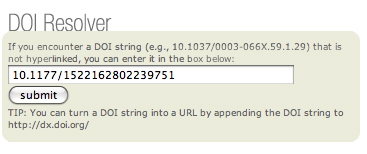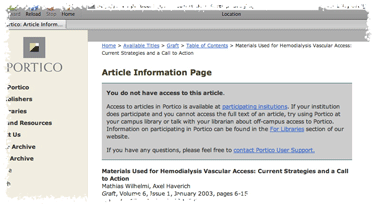It has been nearly a month since the last post appeared. To some degree that’s a function of the 100+ hours it seems I’ve spent on personnel issues (a Copyright Officer search where success is very near) and doing the paperwork needed to post a Digital Library Development position (should appear in a few weeks). Subtract from that a week off for Spring Break and a month between posts seems almost reasonable.
Here are a few brief notes to help bring things up-to-date…
Pam retires
March 24. After at least 28 years in the Systems Office (and a few prior to that in our circulation area), Pam Levy finally figured out a way to finish up her work here at Mason. We miss her already and really hate to see a great colleague (and all that Voyager expertise) just walk out the door.
We’re hoping she’ll at least stop by and say hello every now and then. We’ll try to resist the temptation to start an “ask Pam about” pile of questions.
ITU Project Briefings
Did a brief presentation on our Research Portals project for the central IT group on campus. I don’t think I did a very good job presenting what we’re trying to do (about halfway through the demo I realized it’s hard to explain library subtleties to a non-library audience), but the group was polite and no one was rude enough to actually remark on my performance.
Speaking of the portals, I upgraded the WordPress piece of our Bioinformatics portal to the 2.5 release and installed the current version of the APC (Alternative PHP Cache) module on the server. I tried the APC cache on a Mac OS X server a year or so ago and found memory leaks eventually caused the machine to lockup. Will monitor this carefully but the current version of the opcode cache (3.0.18) claims a number of memory leak fixes over the last version (3.0.12p2) I tested.
Note to Mac OS X Server users (10.4.x): the APC cache uses shared memory and BSD unix (including Mac OS X server) doesn’t come with much. You can bump up the size of shared memory on OS X Server (not the regular OS X) via an edit to /etc/rc which is read during bootup. Here’s what I have in the appropriate line from that file to create a 32Mb block of shared memory (should be on a single line):
sysctl -w kern.sysv.shmmax=335544320 kern.sysv.shmmin=1 kern.sysv.shmmni=32 kern.sysv.shmseg=8 kern.sysv.shmall=81920
CNI Spring Meeting
An oddity from my flight up to Minneapolis: the guy across the aisle from me was Vermont’s senator, Patrick Leahy. I don’t know which surprised me more: that a US senator would fly coach or that the fellow standing there all by himself to meet Leahy as we deplaned was Walter Mondale. And yes I am avoiding any sort of joke about senators and the Minneapolis airport.
The CNI meeting was the usual combination of several really interesting presentations and at least one where I suspect the important thing was to present *something* at CNI and it didn’t really matter so much what it was.
One highlight was a talk by Chad Kainz and David Greenbaum on their relatively new Bamboo project (http://projectbamboo.org). They’re embarking on an 18-month series of workshops and conversations, trying to figure out ways to improve cross-disciplinary academic innovation by defining and then developing pieces of what I guess you’d call a humanities cyberinfrastructure. That’s about 17 months and 3 weeks more planning that I ever manage to do, but the goal is an ambitious one so I guess that’s the sort of time you need to block out.
I also enjoyed a presentation by Joan Lippincott on the current state of “computer labs -> information commons -> learning commons -> academic spaces” planning across campuses. We may add this sort of space at Mason in the next few years and I wanted hear what others were thinking. I wasn’t sure I’d benefit from the session (it’s not an area I spend much time thinking about) but I ended up really enjoying it. Many confirmed my own bias: loading up a room with desktop computers is so yesterday—students today come into the library with the computer (laptop). What they want is a flat surface, electricity, robust wired and ubiquitous wireless networking and access to peripherals they either can’t afford or don’t want to purchase, store or maintain.
LOCKSS
We also had a LOCKSS Alliance meeting prior to the conference which I believe resulted in the idea that a LOCKSS appliance should be able to respond as a target for OpenURL resolvers. I’ll await an official announcement on whether this will indeed be a developmental priority for the LOCKSS team but that was my sense of the group’s wishes.
As an aside, it was neat to see that David Rosenthal ran his presentation on an EeePC.
LOCKSSed OUT
Here’s a tidbit I picked up on during our meeting: recently the e-journal Graft: Organ and Cell Transplantion ceased publication—constituting a “trigger” event both for CLOCKSS and Portico. The Portico people were first in line to CrossRef and got the DOI for Graft articles to resolve to Portico…leaving CLOCKSS out in the cold in terms of DOI namespace.
DOIs can resolve to only one location which suggests that DOI will make a pretty ineffective tool for digital preservation. To see how it works (and how it doesn’t), here’s the DOI for an article from Graft:
10.1177/1522162802239751
If you search that in DOI resolver at crossref.org:

You’ll end up at this page:

Too bad if your Portico insurance policy’s premiums aren’t up to date. You can, of course, get this content from the Creative-Commons licensed CLOCKSS system if you happen to know that it exists there:
http://graft.edina.clockss.org/cgi/content/abstract/6/1/6
This “happen to know it exists there” problem is one that the CLOCKSS group is trying to solve. Getting CrossRef to support multi-homed DOIs would be a useful start. Enabling a LOCKSS (and CLOCKSS) appliance to respond to OpenURL requests as a target source would be another. Getting SAGE to list both Portico and CLOCKSS as a source for “moved” content would be the sort of thing that might help too. Supposedly “library-friendly” entities like Portico jumping in to lock content behind their fee-based wall isn’t at all helpful.
Update 4/10/08: DOI resolution may soon improve. See comment from Ed Pentz of CrossRef below.
Done
OK, I guess I’m caught up. Oh, one last thing, did I mention I managed to catch a Sonny Landreth show last Friday nite at The Barns at WolfTrap?
